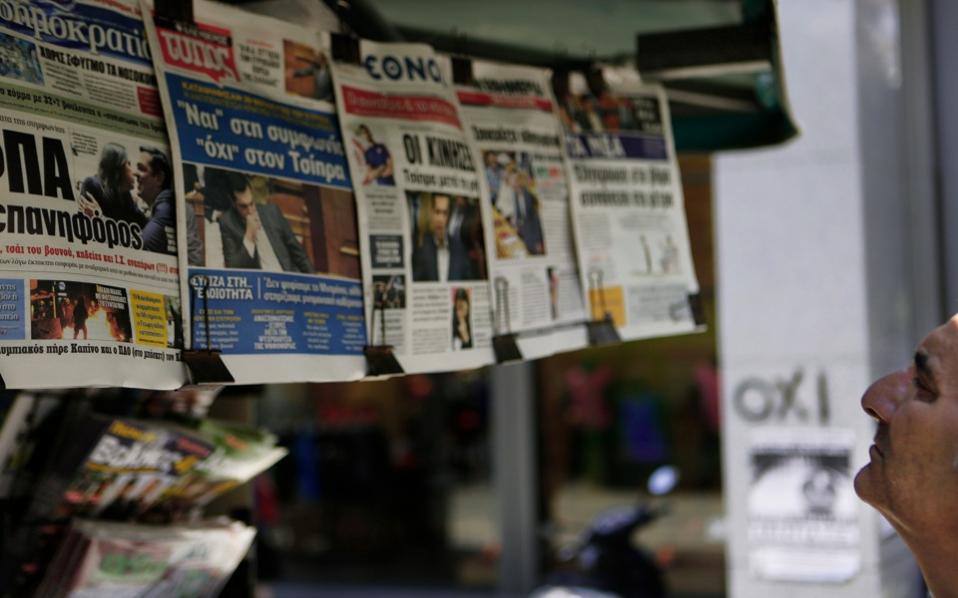The era of ‘clopy-paste’ information

Newspapers around the world are facing an unprecedented crisis. Print edition figures are shrinking, landmark publications are folding and no one is able to predict how long print will survive for. This is a structural crisis. Leading international newspapers are looking for ways to balance between their digital and print editions. So far, very few have found ways to be profitable on the Internet.
In Greece, newspapers are experiencing a perfect storm, given that the global crisis was followed by the country’s own. Revenues from advertising shrank during the crisis years, while those who once bought three or four Sunday papers have slowed down their purchases, if not stopped altogether. Circulations have gone down. Amid this new reality, the survival of print media will not be easy. Having always been lacking in terms of serious leadership, the sector failed to tidy up its own house, despite signs of the impending storm. The industry got caught up in a nouveau-riche cycle of special deals and never-ending supplements which altered the core product, given that many people bought newspapers based only on the offers.
There is also a deeply modern Greek phenomenon which has yet to be dealt with and causes enormous damage, the so-called “clopy-paste.” Dozens of sites reproduce stories, analyses and cartoons from newspapers without ever paying any royalties. Somewhere in the story they refer to the newspaper as the source of the story, but that’s about it. This phenomenon is getting out of control. In our role as journalists and businesses we must find a solution to this.
During the crisis, public opinion has turned toward the Internet for information. People now say, “I saw it on the Internet.” Those who felt their living standards have dropped now justifiably treat the mainstream media with suspicion. Sometimes they get angry because they don’t want to hear the truth, while sometimes they believe certain media outlets are withholding information. This is true, of course. There have always been good and bad newspapers, just like there are good and bad websites. Whether institutional or mid-level, extortionists have always been part of the local media landscape.
Today a large part of public opinion is informed online through sensationalist headlines or reproductions of completely unsubstantiated news. You read about “Obama yelling at Merkel over Greece,” before realizing that there is no such thing but that someone posted an item somewhere and the rest reproduced it without filtering the information, each time adding a little bit of their own to the original.
Amid this climate, newspapers are fighting for survival. International experts insist that print will last for another 10 to 15 years and that high-standard newspapers in particularly will survive the digital transformation. Let’s see who survives in the local anarchic information jungle.




